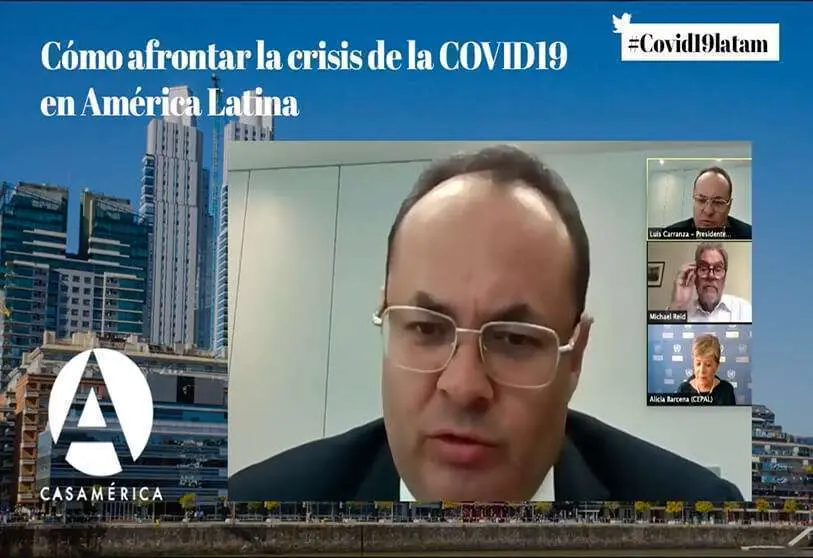Opportunities for Latin America in the face of COVID-19

The executive president of CAF - Latin American development bank -, Luis Carranza, and Alicia Bárcena, ECLAC's executive secretary, analysed the challenges facing Latin America after COVID-19 in a conversation organised by Casa de América, entitled How to face the COVID-19 crisis in Latin America? Moderated by The Economist's editor, Michael Reid, the two leaders addressed key issues for the region's development, such as the expected increase in poverty rates, public support for the most vulnerable economic and social sectors, and measures to mitigate the drop in GDP, which according to several studies will be around 5% by 2020, as a result of the pandemic.
"There will be no economic recovery if there is no credit recovery first," said Carranza who, in response to questions from those following the event through the networks, highlighted the work of CAF in this regard with the line of credit it has made available to its shareholder countries for $2.5 billion.
The executive president of CAF also stressed that the current phase has three key aspects: the normalisation and control of the pandemic, the maintenance of the chain of payments, for which it is necessary to provide liquidity to companies, and the solidity of the banks. As for the recovery phase, Carranza said that there will be indebted companies and families whose consumption patterns will take time to recover, so he advocated a fiscal response that supports demand, intervention in the most affected sectors, and the need to address the productivity gap in Latin America.
In this regard, Carranza commented on the need for a global coordination process to boost infrastructure development in the countries of the region and help them to overcome the recession. "We need the fiscal guarantee of responsibility, and that is why fiscal rules must not only aim at macroeconomic stability but also support spending on public investment; but on the other hand we need funds to support development that allow the region to reduce its infrastructure deficit with very long term debt at concessional rates," he said.
In view of the possibility that the post-pandemic world will be less globalised, Carranza considered that "we have to rethink integration in the region. We don't have a single regional supply chain, we don't have enough integration, and this crisis should help us take on the challenge of integration once and for all.
Alicia Bárcena said that "development banks are not only an important source of resources for the productive development of the region and the deepening of trade and financial integration. They are also a source of stable and counter-cyclical financing. In addition, the ECLAC Executive Secretary insisted on the importance of the change that is coming: "Everything is going to change," said Bárcena; "household consumption will not be the same. This crisis has taught us that we can live with less. In terms of sustainability, it has taught us many important things. We have to rethink our relationship with nature and rebuild a different reality because, if not, the next collapse is climate change".








